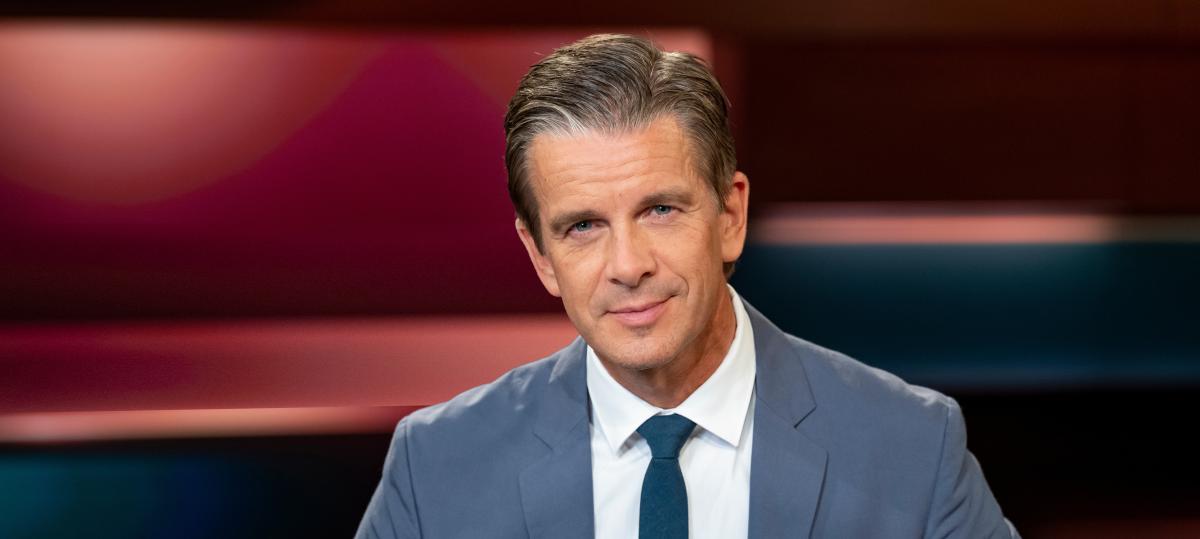The Bulgarian Dilemma: Between Vera and Dalaver

« Vera and Dalaver. Essays and analyzes, simplicity and stories 2000-2024 » by Alexander Kyosev
editor Valentin Kalinov, « Hummingbirds », 2024
(Attempts to review)
To review Alexander Kyosev is – in a corporate language – « real challenge ». But also a dangerous job, because if you do it « reckless or thoughtless », you will only register as a shameful participant, as Hadjiyski writes. And then Kyosev will frown his pedagogical forehead: « Andreev, is it a review?! »
The first attempt to review. Imagine that you have a choice either to watch a great football match, or without the image just to listen to the comment of Bulgarian sports journalists, whose work, however, Alexander Kyosev, with gentle irony, analyzes in the essay « What do you think, Vasco? ». In short, there is no point in reading something about Kyosev’s texts in this book, because they themselves are so smart, witty, wise and fun that no reviewer can step on their little finger. So read the book. End of this review.
Alexander Kyosev’s essays, stories and comments are collected in Vera and Dalaver
A second attempt. Professor Alexander Kyosev has gathered in his book Vera and the Dalaver about 80 essays, written for about 20 years. 335 pages, a long story with auto -references and repetitive motives such as the mitochondria and a quarrel for a Kychovtsi cap. You have the feeling that you are talking to a good and wise friend who all the time reminds you that things are not so simple at all. Just don’t think the latter is a cheap tag with Kyosev’s texts. On the contrary.
| It is simply impossible for this very deep, very honest, very brave and very funny book to pack in gift paper with a ribbon that says « Pencho Bre, Read! ». And that things are complicated – they are complicated. And Alexander Kyosev, as a skillful dialectic, plays their complexity with the help of a rhetorical technique that can be told in the shortest: some say one, others say another, but in fact … |
Third attempt. But in fact, Sasho Kyosev’s book is an exciting guide to the misery and apotheses, the complexes and manias for greatness, the accelerated time and the timelessness of what is called « the transition in Bulgaria » – for this transition are the essays in the first and second, the « guards » and religions respectively. The third part « Patriotisms » and the fifth part « in the world and in our country » are the true territorial waters of the author (from the Lake of Ohrid to the Black Sea, from the White Sea to the Danube, and also beyond those water sources), in which the enlightened reader – shocked and fascinated – swims the gaze.
| There, in the range between Botev and Levski on the calves of the dads and the civil patriotism of Alexander Kyosev, between the revisionism of part of the modern Bulgarian historiography and the real, honestly, the most exciting discoveries of the author, which he himself, which he himself is, which he himself, which he himself is, which he himself submits, which he himself underestimates. too. » Indeed, most of these things Kyosev saw them 20 years ago – and they haven’t moved since. |
Fourth attempt – fragments.
The title of the book « Vera and the Skalaver » is like a drawing of Picasso: two verbal strokes – and the portrait of the transition is ready. In the eponymous essay, Kyosev, by the way, writes: « Doing Business » is the official face of Bulgarian capitalism, and « turning the scam » is his intimate, human face where many rules and standards are not a matter. «
* * * *
Kyosev very confidently moves on the blade of the razor, with which the younger generations would immediately cut his head: Because, right, he is Bumer, one of those « funny old men with ideological tics » that he mentions a mimyhod. One of those « slow-analog, chilling and reflexive people » who still doubt and check. Against the razor (yes, and against the « razor of the Okam »!) He provides him not only self -irony and erudition, but also his excellent orientation in the new world of social media and the « invading new regime of the heartless truth », which disposes of « without the right to appeal ».
| It would have been very funny if it wasn’t for what he wrote in the essay « Kaka Ginka or for the new truth »: « There is, this new, fast-man’s truth is coming, it has already taken bey, and Stefchov, and the Denno, …) The tests and the trials, come with these confirmations or rebuttals (…) We have no time for such nonsense, no time, listen to the clear and the only truth. |
« Eastern European transition should be read in two words – Vera and the scam »
* * * *
Kyosev tells sweetly and fascinatingly, does not pour at all like his protagonists From the upper paragraph (« Sulla and Pulla », as he gently calls them), he does not need them: both the generations of his students and his thousands of fans in networks and the media can sometimes hate him, but they hate him with respect because they are about to argue – they are confused, they are tried. In fact, a very nice self-speaker peek at the book, but Kyosev himself will immediately remind us that there may be small differences between the author and the self-story.
However, there is a complete coincidence between the two aza of a well -read, thinking, reflective and ironic and self -ironic archeologist of modernity, whose reflections simply cannot be extracted from the texts, because thought develops on the move and should neither be stenched nor subtracted from the context, let alone intermittently. It is no accident that Kyosev does not like to interrupt him.
* * * *
Archaeologist Kyosev also dugs in deeper, older Bulgarian layers, where you will forgive me – with a terrible stench, the corpse of the NRB is decomposed. In the essay « Uncle Kolyo » and in « Why I believe in Veselin Branev » he stripped the skeleton of State Security – a skeleton with a very small skull, but with strong bonesS Kyosev is rightly « furious with the fashion expression of those stupid young people »: « Come on with these concentration camps! », Who think this page should be closed. Those stupid young people who know almost nothing about the atrocities of the Early DS and the concentration camps, nor the striking stupid of the later DS, whose tens of thousands of primitive and uneducated « Chekists » guarded the state by digging through the sheets of the people’s bedrooms.
Alexander Kyosev writes: “The memories of Branev suggest that monitoring in totalitarian society is equal to the human state itself – it is Conditio HumanaS There are two main characteristics: non -authenticity and fear. Nothing is what it seems, everyone resides in total, secret visibility, people are doubled because someone writes the true truth about them in secret books called « Files ».
Else in the book, Kyosev finds a very accurate formula for the banality of evil in those years: « the terribly ordinary time of socialism. » And in the essay « hatred, nostalgia, parody or for the fate of astonishment, » the author analyzes an increasingly turbulent nostalgic nostalgia in the People’s Republic of Bulgaria, the guilt of which is mostly the revisionists describing the socialist life in the key of some « Machlenic cultural intimacy ».
| This is how the designation of those times such as « sots » – « 45 long and complex years, shortened in a syllable » arises, as Kyosev writes. And further: « The social was hinting that life was actually petty, fraudulent and provincial at the time, and today there are no special inheritances, monsters or dreams. » |
* * * *
If nowadays Alexander Kyosev decides to rise in Tictoc, too, I personally guarantee him that with a few proofs on his crown themes he will gather millions of likes. His iconic essays « Girls », « Banitsa » or « Chalga History » will directly inspire all the scandalous journalists, visa, influencers or the most ordinary conspiratoologists – as long as, of course, the author can put them in 59 seconds. Well, he’ll hardly want, I’m sure, but we’re dreaming. For example, some such 59 seconds from the chalga essay:
| « In Bulgaria, the table firmly took its cultural rights in its hands and inspired by the occurrence of democracy without shores, rejected all authorities. He wanted to listen to the same old, beloved Balkan simplicity for which, for generations, the hateful pro -Western intelligentsia has been hindered. » |
After quickly tracing the phases through which the chalga passes, Kyosev also reaches its capture from the Mutras and the shady economy: “Of course, they did not come alone, but with their rules and subculture: the mass Balkan underground pleasures and the crime-fed man met in a happy « And no one wanted censorships, teachings, regulations, traffic lights, norms, laws. »
* * * *
Reading Kyosev is a real kef. The higher-up word « enjoyment » may be used here, but the Balkan kef of Kyosev’s reading also comes from the fact that at the level of text he virtuoso and with a well-founded self-confidence mixes the linguistic layers, plays with both the high Renaissance, as well as with the low street (s) (its own. Against human stupidity.
Prof. Alexander Kyosev: The destruction of the Berlin Wall has been replaced by new walls
And under this level, all the time, the deep stream of his – as a man and intellectual – concern – concern for a lot of Bulgarian society is flowing. For atomization and loss of social relationships, for the breakdown of values, for dulling and mercantilization. Finally, a meaningful quote from the essay « The end of the imagination. The connections are broken and we don’t even notice it »:
| « In fact, altruism and imagination are very important and their sharp decline is not harmless – they are the main social adhesive of modern sociality, including the modern nation – through them, solidarity, a sense of inclusion, identity and social cohesion are built. Isolated groups, such as in parallel, is replaced by its populist counterpart – a credible proud nationalism, in fact a form of dissatisfaction with elites, media fashion and xenophobia mask and increasing social distances compared to all that are different. « |
Well, yes, it is.
Note below trait: The author of this review here and there, freely or involuntarily, imitates the verbal repertoire of Alexander Kosev. For which he asks to be excused.









